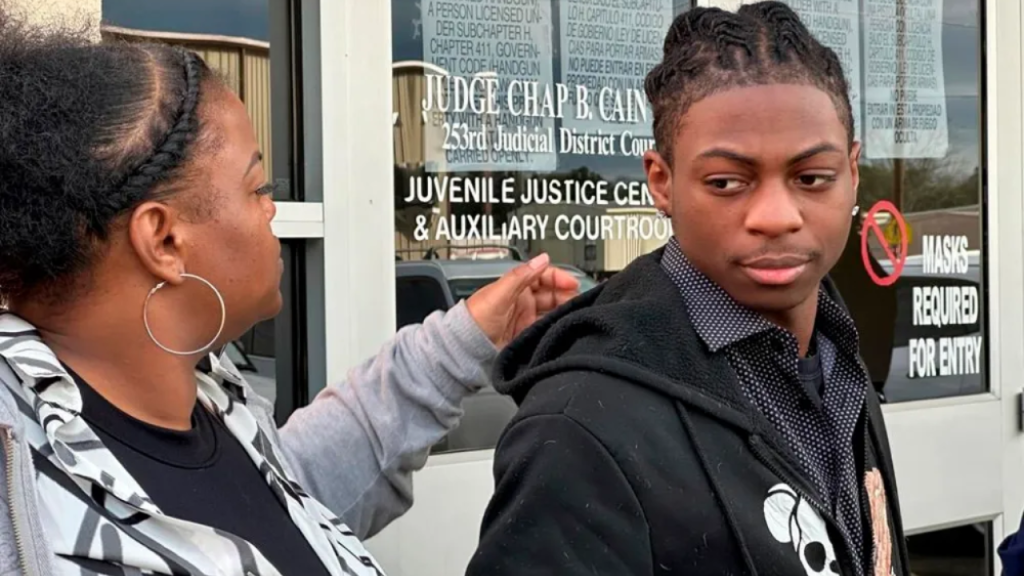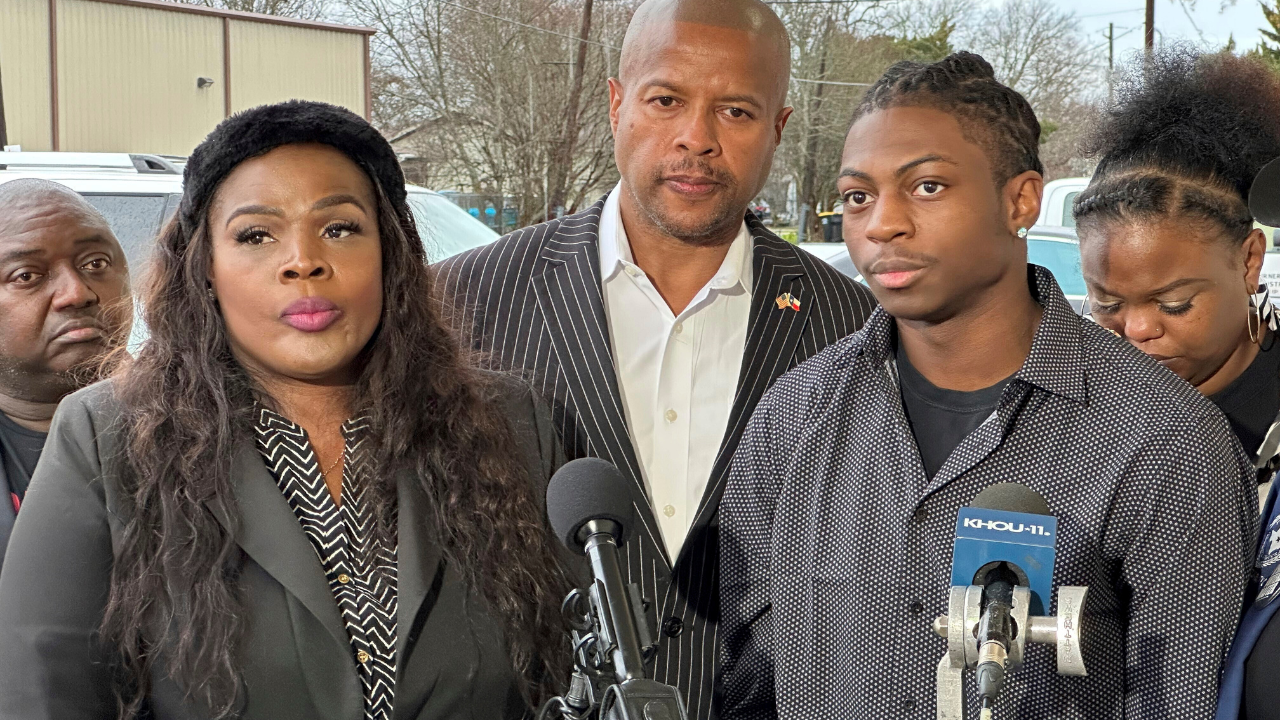Texas Black Students Who Wear Locs at School Are Going to Trial for Being Punished!
CNS News–In a case that underscores the complexities of race, individual rights, and educational policy, the legal battle between Darryl George, an 18-year-old Black student, and the Barbers Hill Independent School District in Texas, is drawing significant attention. Scheduled for trial on February 22 at the District Court in Anahuac, this case revolves around the district’s enforcement of its hair policy and its implications for racial discrimination.
Darryl George has been at the center of a contentious dispute with the Barbers Hill ISD since he faced continual punishment for his hairstyle. The district’s decision to suspend George for wearing locs has been met with public outcry and legal scrutiny, especially considering the recent enactment of the CROWN Act in Texas, a law designed to prohibit race-based hair discrimination.
The conflict escalated when Barbers Hill ISD Superintendent Greg Poole publicly defended the ongoing suspension through a full-page advertisement in the Houston Chronicle. In the advertisement, Poole argued for conformity and unity, citing these as American values and essential for maintaining high standards.

However, this defense only fueled the controversy, attracting viral backlash and widespread criticism for its perceived racial insensitivity. Responding to the superintendent’s stance, George’s family attorney, Allie Booker, sharply criticized the school district’s actions. During a press conference held the day after the trial date was announced, Booker accused the district of violating federal and state laws, emphasizing the discriminatory nature of the punishment meted out to George.
She highlighted the apparent double standards in the enforcement of the dress code policy, pointing out that white students with similar or longer hair lengths were not subjected to the same disciplinary actions. The CROWN Act, co-authored by State Rep. Rhetta Bowers and enacted in September 2023, aims to protect Texans who wear afros, braids, Bantu knots, twists, and locs from discrimination in state-funded institutions or workplaces.
Bowers expressed her unequivocal solidarity with the George family, condemning the district’s actions as a violation of this law. She emphasized the individuality inherent in American values and criticized the district for allegedly targeting George based on his race. Superintendent Poole, however, maintains that the district’s policy is not in violation of the CROWN Act.
The Superintendent of Barbers Hill ISD took out a full page ad in the @HoustonChron to defend suspending an African American student from school because his hair was too long. Wow. Just wow. pic.twitter.com/C2cZYUh3dR
— Murray Newman (@murraynewman) January 14, 2024
Read More News: New Research: Texas Abortion Restrictions Result in 26K+ Rape-Related Pregnancies Case Finds!
Governor Abbott Makes a Statement About the Right to Self-Defense in Texas’ Constitution!
Joe Biden Requested to Take Control Over Texas National Guard from Greg Abbott!
He argues that the issue is not with George’s locked hairstyle per se but with the length of his hair. This stance, however, has been disputed by advocates and legal experts who assert that the CROWN Act protects all protective styles, regardless of length. The case is a significant one, not just for Darryl George and the Barbers Hill ISD, but for the broader context of racial discrimination in educational settings.
It tests the boundaries of the CROWN Act and challenges prevailing attitudes and policies regarding race and personal expression in schools. As the trial date approaches, it brings into sharp focus the ongoing struggle for racial equality and the right to individual expression in the educational sphere.

